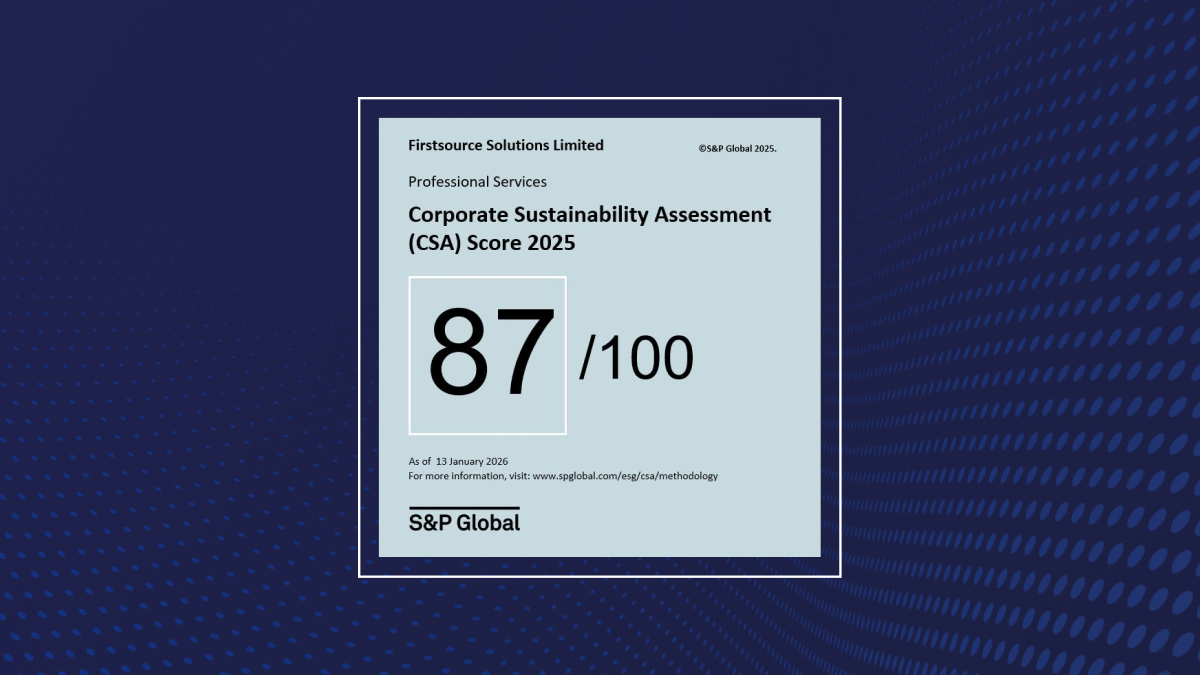In today's diverse and inclusive society, businesses must recognise and address the unique needs of all their customers, especially those who are vulnerable.
Due to their circumstances, vulnerable customers may face significant challenges when interacting with businesses - particularly when making complaints.
In the UK, it is estimated that approximately one in four adults may experience some form of vulnerability at some point in their lives. This makes it imperative for businesses to have robust and empathetic complaints handling processes in place.
In this guide, we explore the importance of supporting vulnerable customers, their challenges, and how companies can enhance their complaints procedures to serve this critical population segment better.
Who Are Vulnerable Customers?
Vulnerable customers are individuals who, due to their circumstances, are especially susceptible to harm or detriment when companies fail to act with appropriate levels of care. Vulnerability can manifest in various forms, including but not limited to:
- Physical disabilities: Customers with mobility issues and visual or hearing impairments
- Mental health conditions: Individuals experiencing anxiety, depression, or cognitive impairments
- Age-related vulnerabilities: Elderly customers or very young adults may lack experience
- Financial difficulties: Customers face economic hardships that affect their ability to engage with services
- Language barriers: Non-native speakers or those with limited literacy skills
- Temporary circumstances: Customers dealing with bereavement, illness, or other life events that temporarily impair their ability to engage effectively
It is important to note that vulnerability can be situational and not always permanent. Therefore, businesses must be vigilant and adaptable in identifying and supporting these customers.
Challenges Faced by Vulnerable Customers in Making Complaints
Vulnerable customers often encounter significant barriers when attempting to make complaints. These challenges can include:
- Fear of repercussions: There are concerns that complaining may lead to negative consequences, such as loss of service or retaliation
- Lack of understanding: Complex complaint procedures can be daunting, especially for those with cognitive impairments or limited literacy
- Accessibility issues: Physical barriers (e.g., needing to visit a store in person) or digital barriers (e.g., navigating online forms) can prevent customers from lodging complaints
- Communication difficulties: Customers with speech impairments, language barriers, or anxiety may struggle to articulate their issues
- Emotional distress: The stress of filing a complaint can exacerbate existing vulnerabilities, leading to further harm
These challenges underscore the need for businesses to create complaints processes that are both inclusive and supportive.
Responsibilities of Businesses towards Vulnerable Customers
Businesses have both a legal and ethical responsibility to ensure that vulnerable customers are treated fairly and with dignity. In the UK, various regulations and guidelines underscore this obligation:
- Equality Act 2010: Mandates that businesses make reasonable adjustments to ensure that disabled customers can access services
- Consumer Rights Act 2015: This Act ensures that all consumers, including vulnerable ones, have the right to fair treatment
- Financial Conduct Authority (FCA) Guidelines: For financial services, the Financial Conduct Authority (FCA) requires firms to identify and support vulnerable customers, ensuring they do not face unreasonable barriers
Beyond legal compliance, businesses have an ethical duty to protect and support vulnerable customers, fostering trust and loyalty.
Best Practices for Handling Complaints from Vulnerable Customers
To effectively support vulnerable customers, businesses should consider implementing the following best practices:
- Training staff: Equip employees with the skills to recognise signs of vulnerability and respond with empathy and patience
- Simplified processes: Design straightforward complaint procedures that are jargon-free
- Multiple channels: Provide various avenues for lodging complaints, such as phone, email, in-person, or through a dedicated online portal
- Prioritisation: Establish protocols to fast-track complaints from vulnerable customers to ensure timely resolution
- Personalised support: Assign dedicated case handlers or support teams to assist vulnerable customers throughout the complaint process
- Feedback loops: Use complaints data to continuously identify patterns and improve services
Integrating Innovative Technology Solutions
In addition to traditional best practices, leveraging modern technology can significantly enhance the support provided to vulnerable customers. Consider the following solutions:
Agentic AI for Vulnerable Customers
Agentic AI systems are designed to detect subtle cues in customer communications that might indicate vulnerability. These AI tools can offer empathetic responses and automatically escalate complex issues to human agents by analysing language patterns and sentiment. This technology personalises the customer experience and ensures that vulnerable customers receive the care they need from the outset.
Realtime Translation Tools
Language barriers can be a significant impediment to effective communication. Real-time translation tools allow businesses to translate written and spoken communications instantly. This ensures that non-native speakers or individuals with limited literacy skills can express their concerns and understand responses without delay. This tool makes the complaints process more inclusive and accessible.
Financial Assessment and Support
Integrating automated financial assessment tools can be transformative for customers facing economic hardships. These solutions analyse customer financial data to provide tailored advice and support, ensuring that financial constraints do not impede access to complaint resolution. By offering personalised financial guidance, businesses can help customers navigate their financial difficulties while addressing their complaints effectively.
Agent Assist
Agent Assist technologies support customer service representatives by providing real-time suggestions, relevant information, and context-sensitive prompts during interactions. This assistance ensures that agents can maintain a high standard of service even in complex or emotionally charged situations. By integrating Agent Assist, companies can reduce the likelihood of human error and ensure that all customer interactions are handled with the utmost care and precision.
Data and Insights
Harnessing data analytics and insights is another critical technological solution for improving the support provided to vulnerable customers. By collecting and analysing data from various touchpoints, businesses can identify common complaint themes, monitor response times, and evaluate the effectiveness of their support processes. This data-driven approach allows companies to:
- Detect trends and proactively address emerging issues
- Tailor support strategies based on real-time feedback and historical data
- Enhance decision-making by understanding vulnerable customer segments' specific needs and behaviours
- Monitor key performance indicators (KPIs) to ensure compliance with regulatory standards and improve overall service quality
Integrating robust data analytics supports continuous improvement and ensures that support mechanisms are adaptive and responsive to changing customer needs.
Supporting Vulnerable Customers in action…
Firstsource plays a pivotal role in supporting clients from various industries with their provision for vulnerable customers. Here are just two case study examples of how we do this:
- Success Story: A telecommunications company implemented a dedicated support line augmented with Agentic AI and real-time translation tools for vulnerable customers. This innovation decreased unresolved complaints and increased customer satisfaction scores by ensuring that all communications were clear and empathetic.
- Learning from Failure: A prominent banking organisation encountered significant challenges when supporting a customer navigating the complexities of bereavement. The lack of streamlined processes for updating account details and processing power of attorney arrangements led to delayed resolutions, customer distress, and regulatory scrutiny. This case highlights financial services' need to integrate technological solutions—such as automated financial assessments, secure digital documentation, and Agent Assist capabilities - to provide timely and empathetic support during sensitive life events.
Addressing the complaints of vulnerable customers is not just a regulatory requirement but a moral imperative for businesses in the UK.
Companies can foster a culture of inclusivity and trust by understanding vulnerable customers, recognising their challenges, and implementing best practices and innovative technology solutions.
Technologies such as Agentic AI, real-time translation tools, financial assessment and support, and agent assist can seamlessly integrate with existing systems to enhance the complaints process.
These solutions ensure that every customer feels heard, supported, and valued - regardless of circumstances.
Get in touch to find out more
Review your complaints process today and explore how integrating these tech-driven solutions can help you provide better support for vulnerable customers.
Taking these steps is essential for building a reputation as a caring and inclusive business in today’s competitive market.
Get in touch with one of our experts to learn more…











